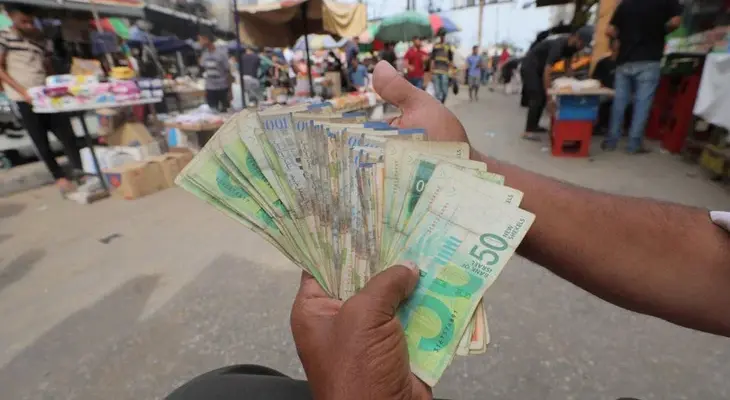## Aid Flows in Gaza Unintentionally Bolster Hamas Finances
Monthly cash transfers from United Nations (U.N.) agencies intended to assist residents of Gaza are inadvertently strengthening the Hamas terrorist organization, according to an expert on the group’s financial operations. Hamas and its affiliated traders maintain a firm grip over the flow of these funds within the enclave.
“Hamas exploits its position as the de facto ruler of Gaza to extract financial gains from aid money channeled through mobile apps still operating in the region,” stated Eyal Ofer, an expert on Hamas’s financial and economic activities.
Ofer explained that Hamas manipulates the aid system, largely behind the scenes, by leveraging control over major merchants, criminal networks, and establishing a shadow banking system within Gaza using cash.
Scale of Aid & Resident Experiences
- The U.N.’s World Food Programme (WFP) transfers approximately $18.43 million monthly to 82,636 families, averaging around $209 per family.
- UNICEF provides an average of $5 million each month, assisting at least 20,000 families.
- Smaller organizations also contribute, bringing the total monthly aid to roughly $39.66 million, reaching approximately 60% of Gaza’s households.
Despite this significant direct financial assistance – impacting over half of Gaza’s population – the territory faces severe food insecurity (91%) and high inflation (118%, as of January 2024). Residents report exorbitant fees to access their aid.
“I go to the market and meet people whose job is to provide cash in exchange for a fee. The fee is 20–30%. If I transfer 1,000 shekels [$271] I get back 700 [$190],” said Gaza resident Shahab Yousef to TPS-IL. “For big purchases, I pay digitally. But at the market, I need cash, and I lose 30 percent every time.”
Another resident, Nidal Qawasmeh, echoed this sentiment: “These people are charging 30 percent just to give you cash. I just want to take care of my family, but everything costs me more because of this. Prices are insane.”
Hamas’s Financial Control & Calls for Action
The aid, intended to support a Survival Minimum Expenditure Basket (approximately $270 or 1,000 New Israeli Shekels per family), is funneled through intermediaries who extract significant fees. These fees can range from 20% to 35%, effectively diminishing the value of the assistance received.
Ofer noted that traders often refuse app-based payments and pressure customers into converting funds to cash, forcing them to accept these substantial losses. According to TPS-IL, Israel’s Foreign Minister Gideon Sa’ar recently warned that Hamas’ economic power relies on billions of shekels in cash used for salaries and reclaimed through taxes from merchants.
Sa’ar urged the Bank of Israel to cancel the circulation of 200-shekel bills introduced into Gaza, believing this would severely disrupt Hamas’s financial network. However, the Bank of Israel rejected the proposal citing technical difficulties.
UNICEF’s Response & Ongoing Concerns
Peter Gallo, an international lawyer and former investigator at the U.N.’s Office of Internal Oversight Services (OIOS), stated: “If an investigator in Israel can figure it out, the aid agencies either knew or should have known. Twenty to thirty percent is just ridiculous. That’s extortion.”
UNICEF has responded by introducing fully digital cash payments via e-wallets since May 2024, aiming to eliminate the need for physical cash and associated fees. They claim this program adheres to the highest standards of neutrality and impartiality.
“More than 1.8 million people—close to the entire population of Gaza—are grappling with extreme food insecurity, with at least half of them being children,” UNICEF stated in a statement. “The UNICEF humanitarian cash transfer program is, simply put, keeping children alive… We estimate that these parameters are too small to significantly impact the local economy.”
Despite this shift toward digital payments, concerns remain. The World Food Programme has not responded to requests for comment.
Gallo concluded: “Turning a blind eye is not acceptable. The U.N. Security Council has been addressing terrorist financing since 2001, yet aid agencies continue to ignore the fact that Hamas is profiting from this money flow, despite international efforts to stop terrorist financing.”


